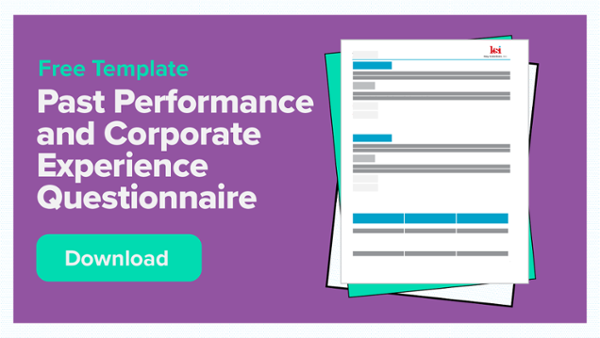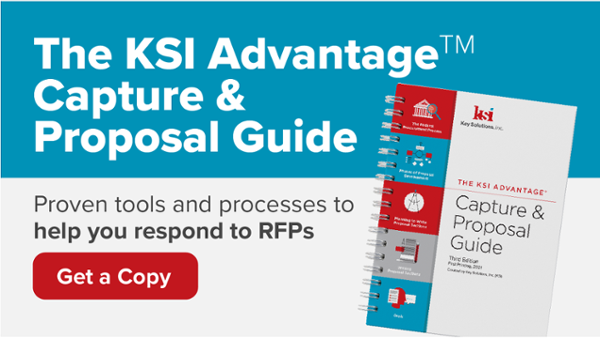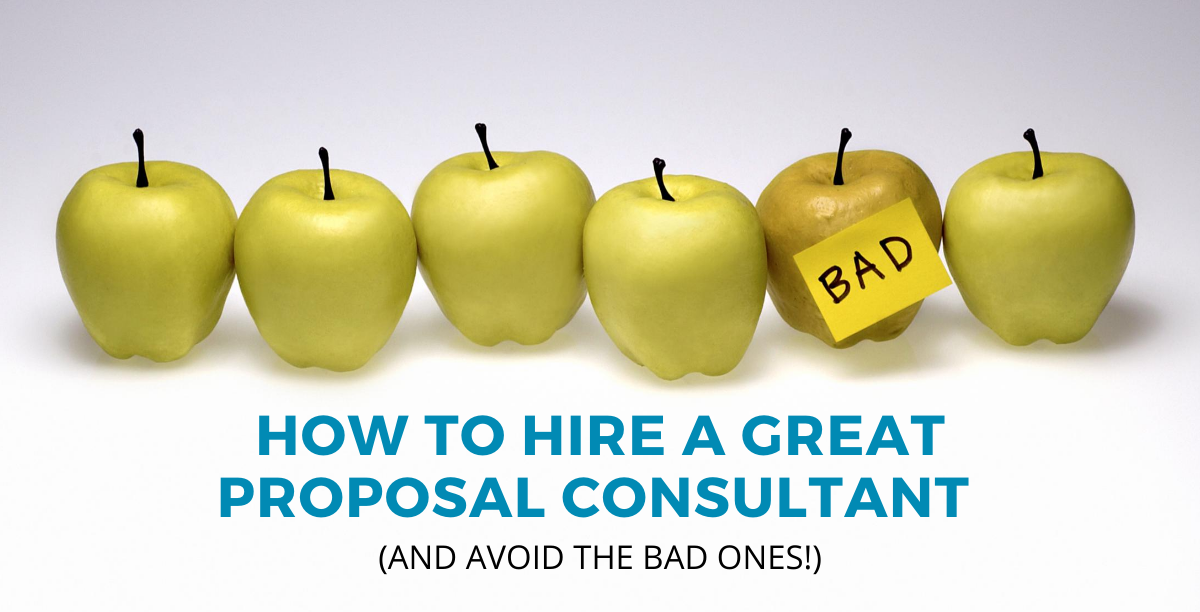Over the years our proposal team has helped many small businesses significantly increase their revenue through sound Proposal Management.
In our "lessons learned", we often see many small businesses that are bidding as primes make the same proposal mistakes. In this post, we share these common mistakes and how you can avoid them.
Three Major Misconceptions to Avoid in the Proposal Development Process:
1. “We don’t have to have past performance in all areas.”
When you and your subcontractors/ teaming partners review the Request for Proposal (RFP), you should evaluate the requirements of the Statement of Work and determine which team member has the most experience in each area.
You can create an Excel spreadsheet that documents this experience and use it as an introduction to your past performance narrative if space permits. If you identify any areas where no team member has experience performing a particular portion of the Statement of Work, you will need to find a subcontractor/teaming partner who can successfully fulfill these requirements.
There is inherent danger in taking the approach, “Well, we are a small business and the Government can’t possibly expect us to have past performance in all areas.”
Sadly, the Government does, in fact, expect the team to have relevant past performance in all areas. Don’t take the chance of being eliminated from further consideration on a proposed contract for failure to meet all requirements.
2. “We don’t know how to perform all the work”.
If you are a small business prime with experience and past performance in a subset of a larger set of requirements for an upcoming contract, (let’s say 25%), and you don’t have a clue about how to at least manage the rest of the work (the other 75 %), you may be treading on dangerous ground if you are bidding as the prime contractor, and, in fact, should not be bidding.
First, you will be forced to rely heavily on your large teaming partner to architect the majority of the proposal’s technical solution and advise you extensively as to how to manage 75% of the effort, which can cause your teaming partner to lose confidence in your company’s capabilities even before the proposal is submitted.
Second, if your company’s past performance history as a prime contractor doesn’t support your ability to manage contracts of similar size, scope, and complexity, it will be a tough sell to win the contract.
As prime contractor, your company will be responsible for managing the effort. Don’t be eliminated from further consideration because your failure to understand the work to be performed represents a performance risk to the Government.
3. “Nobody reads the resumes.”
Often, small businesses underestimate the importance of resumes to a winning government proposal.
They leave the resumes to the last minute, don’t tailor them to the requirements of the RFP, and submit personnel that is on staff and available, whether they have experience in performing the required tasks or not.
Key personnel resumes that show your team's past experience and capabilities in performing the work required by the RFP support your company's overall sales message.
Take the time to find staff qualified for the work they are to perform. Match their resumes to requirements. Build a case for why your company should win the work, because somebody will read the resumes and evaluate the capabilities of the proposed staff.
CONCLUSION
The road to winning as a small business prime can often be challenging. Give your team every opportunity to pull off a successful proposal effort by avoiding these common misconceptions.
This article was originally published on February 5, 2015, and has been updated on May 17, 2023.
Need help developing powerful past performance, resumes, and more? Our KSI Advantage™ Capture & Proposal Guide has over 50 tools and templates to help you develop a winning proposal.









